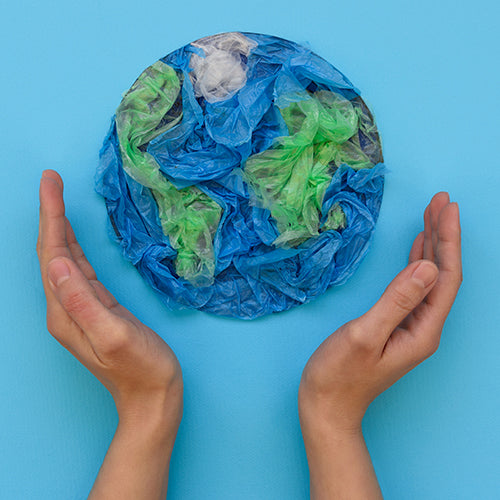There has been an explosion of concentrated tablet, powder, and liquid products around the world recently and I am here for it.
Typically, they are tablets or powders that you pour into a bottle, add water and voila! You have created a spray and wipe, or glass cleaner. Here in Aotearoa New Zealand, they are predominantly household cleaning products, but personal care is growing offshore.
The original Ethique concentrates
Just over two years ago, we released the world’s first range of concentrates that covered hair care, hand and body care and cleaning products.
It was a pilot, because at that point these concentrate tablets and powders weren’t on store shelves, and we had no idea what customers would think of having to make their own products up with water. It had taken me several years to get the product even off the Research & Development (R&D) list and onto the factory floor due to the concern that people just weren’t ready to buy and use products like concentrates yet.
The result?
Well, they were a runaway success and we have just launched our range of new and improved concentrates, which have taken customer feedback on board, ensuring they are even easier to make – a testament to the lightning-fast developments going on in green chemistry. And now they are ready for retailers, so keep an eye out on shelves near you…

Concentrates are here to stay
The reason for the success of concentrates? By-and-large we all want to do the best we can. We’re all aware of the plastic, climate and biodiversity crises, but we only have so much mental capacity for all of the doom and gloom.
So, when we spend, we want to purchase products that have the smallest possible impact on our planet, and the greatest positive impact on people.
Obvious swaps like shampoo bars aren’t for everyone and there is a definitive ‘ick’ factor when it comes to sharing a bar of soap at a sink in a public space. Sometimes a liquid is essential.
So concentrated powders, liquids and bars are taking the personal care world by storm.
However, there is one issue I have with this new surge of concentrates.
Most brands are releasing their own bottles with them.
An eco-friendly concentrate with new branded bottle?
I understand why brands are selling concentrates with their own branded bottles. Once you dissolve a concentrate tablet, powder or liquid, you have no way of knowing what the product is, let alone who made it.
Scribbling in vivid “hand soap” over an old Palmolive bottle is hardly fit for a guest bathroom. Having separate packaging has obvious upsides for both the business and the customer.
It also somewhat defeats the point of a concentrate in the first place.

Are glass or aluminium bottles better than plastic?
Studies have shown that you need to use a glass bottle somewhere between 5-25 times to equal the carbon footprint of one plastic one.
An aluminium bottle is worse, if made of virgin aluminium, at between 10-50 times (there are many variables that account for the difference). And this only accounts for the carbon footprint – not the rest of what goes into the bottle.
Whilst yes of course, these designer bottles are designed to be reused over and over again, we are forgetting the ‘consumer behaviour’ piece. The vast majority of consumers (and I include myself among them), are really rubbish at sticking with and reusing things.
Case in point – reusable bags. Almost 40% of us forget to take them every time we go shopping. Which means we have to buy those paper bags, or the thicker plastic ones (used in other countries more so), which use a lot more resources and have a much greater impact.
The problem with all these brands creating reusable bottles that need to be used many times before they even equal just one plastic one, is that they are assuming the customer will like and stick with their brand. What if they don’t like the product, or it doesn’t work for them, or if they go back to more conventional ready-made ones?
Your bottle sits under the sink, collecting dust. It’s gradually joined by its relatives from other brands. Brand loyalty doesn’t exist much anymore like it used to in the household cleaning space due to the explosion of competitors and easily accessible information on alternatives.
So, why won’t we make a bottle?
Companies are responsible for the entire lifecycle of their products – well legally they’re not, but I believe morally they are. This includes packaging waste at the end of its life and the accessories they make.
But when brands are designing their ‘better’ alternatives, most fail to consider the human behaviour piece. And this is a helpful thing to ignore, because it results in companies being able to produce endless amounts of things like ‘reusable’ bags, because it’s not their fault customers aren’t reusing them.
Putting greenwashing aside for one tiny second... consuming sustainably should be fairly easy. Only buy what you need.
You don’t need a beautifully branded bottle each time you switch to a new concentrate. So, companies – stop making them!
Our motto is “the best bottle is the one you already have”. So join us, use what you already own, the existing bottles you have stashed away from old spray and wipe packaging, to old washing up liquid bottles. And, you can utilise your voice and purchasing power too by letting brands know!
If businesses come back and say they want their brand on bathroom shelves, perhaps they can include a cardboard tag that pops out of the box, or home-compostable stickers they can whack on the box. It’s an easy solution that would have a much lighter impact on the planet overall.
References:
https://sustainability.mit.edu/article/stuff-versus-stuff-which-water-bottle
https://www.pawprint.eco/eco-blog/green-myth-busting-reusables-vs-single-use
https://rdcu.be/cZwcx




